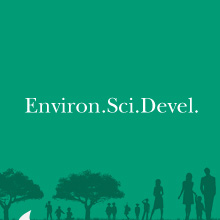Environmental Geography Seminar 6/19
2019-06-18Dear all,
Hello!
This is an announcement of the upcoming Environmental Geography Seminar.
Please see all the details carefully below.
【Date】19th. June. Wed. (Time: 15:00~)
【Place】 D101
【Content】
1. Presenters
i. Mohan
Title: A rapidly growing moraine-dammed glacial lake on Ngozumpa Glacier, Nepal (Paper Link)
Journal: Geomorphology, Volumes 145-146, Pages 1-11
Published date: 1 April 2012
Authors: Sarah S. Thompson, Douglas I. Benn, Kathryn Dennis, Adrian Luckman
Abstract:
Moraine-dammed glacial lakes are becoming increasingly common in the Himalaya as a result of glacier mass loss, causing concern about glacier lake outburst flood risk. In addition to extant lakes, the potential exists for many more to form, as more glaciers ablate down to the level of potential moraine dams. In this paper, we document the recent rapid growth of, a moraine-dammed lake on Ngozumpa Glacier, Nepal. Using a combination of ground-based mapping and sonar surveys, aerial photographs (< 1 m resolution), and ASTER imagery (15 m resolution), processes and rates of lake expansion have been determined. The lake first formed between 1984 and 1992 when collapse of an englacial conduit allowed water to accumulate at the level of a gap in the lateral moraine, ~km from the glacier terminus. Lake growth was initially slow, but since 2001 it has undergone exponential growth at an average rate of 10% y−1. In 2009, the lake area was 300,000 m2, and its volume was at least 2.2 million m3. Calving, subaqueous melting, and melting of subaerial ice faces all contribute to the expansion of the lake; but large-scale, full-height slab calving is now the dominant contributor to growth. Comparison with other lakes in the region indicate that lake growth will likely continue unchecked whilst the spillway remains at its current level and may attain a volume of hundreds of millions of cubic metres within the next few decades.
ii. Xiao Juan
Title: Long-Term Monitoring of Cropland Change near Dongting Lake, China, Using the LandTrendr Algorithm with Landsat Imagery.
Authors: Lihong Zhu, Xiangnan Liu *, Ling Wu, Yibo Tang and Yuanyuan Meng
Year: May 2019
Journal: remote sensing
Abstract: Tracking cropland change and its spatiotemporal characteristics can provide a scientific basis for assessments of ecological restoration in reclamation areas. In 1998, an ecological restoration project (Converting Farmland to Lake) was launched in Dongting Lake, China, in which original lake areas reclaimed for cropland were converted back to lake or to poplar cultivation areas. This study characterized the resulting long-term (1998–2018) change patterns using the LandTrendr algorithm with Landsat time-series data derived from the Google Earth Engine (GEE). Of the total cropland affected, ~447.48 km2 was converted to lake and 499.9 km2 was converted to poplar cultivation, with overall accuracies of 87.0% and 83.8%, respectively. The former covered a wider range, mainly distributed in the area surrounding Datong Lake, while the latter was more clustered in North and West Dongting Lake. Our methods based on GEE captured cropland change information efficiently, providing data (raster maps, yearly data, and change attributes) that can assist researchers and managers in gaining a better understanding of environmental influences related to the ongoing conversion efforts in this region.
iii. Zhou Jinghui
Title:
A comparative study of the national park systems between Chinese mainland and Taiwan: a case of Shennongjia National Park and Taroko National Park
2. Note this:
Please send me the detailed information about your presentation at least 5 days before your turn.
For a paper review: title and author of the paper, journal name, which volume, pages, also the link (if possible) should be provided.
If a paper written in Japanese is going to be presented, please kindly send me the information both in Japanese and English.
【Notice】
※ In case you are absent from the seminar or late for the seminar, please contact Professors or me in advance. Any absence without permission is not allowed;
※ Please be punctual (very important);
※ Please do your full preparation for the seminar;
※ Your active participation is always appreciated;
※ Please feel free to get in touch with me if you have any questions or comments.
Best Regards,
Chang Liang













